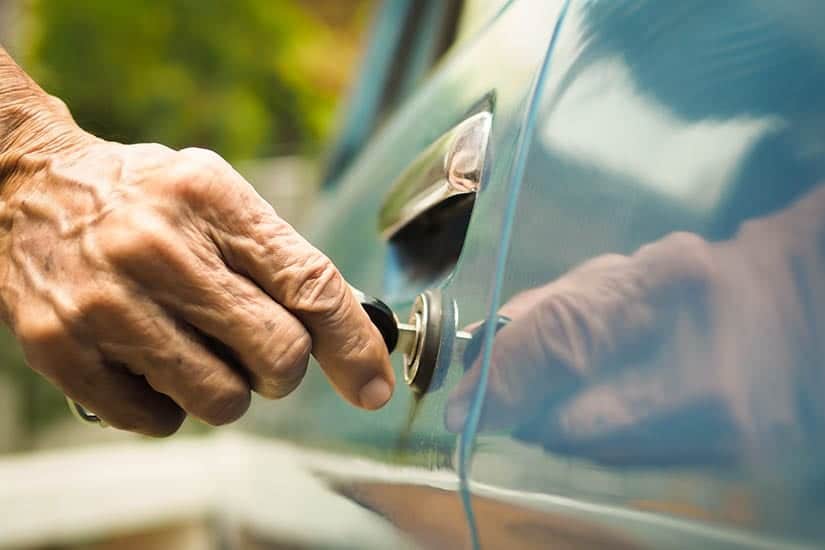Recognizing when a parent or a loved one is unable to keep driving.

It can be a sensitive conversation to navigate: is your elderly parent still able to safely drive? What if they cause a car accident because of their diminished driving abilities? Or experience a debilitating physical trauma like broken bones or a traumatic brain injury because they shouldn’t have been behind the wheel? You don’t want to take away an older driver’s sense of freedom or independence, but you very well may be concerned for their safety, as well as for the safety of others.
In Virginia, drivers who are 75 years or older must present themselves to the DMV to renew their driver’s licence, but there is no mandatory testing tied to age. There are, however, a number of programs that can help caregivers assess and learn how to talk about an older person’s driving ability, and help drivers themselves recognize signs of decline in their own driving ability. Virginia Granddriver is a great resource for things like finding locations for getting a professional evaluation of a senior’s driving ability, useful tips for minimizing risks on the road, and a 12-point checklist that helps “fit” a vehicle to the driver for safer navigational ability.
If you have any reason to be worried about how well an older driver is able tonavigate the road, one of the smartest things you can do is to make an appointment with that person’s doctor. Many of the declines we experience as we age — loss of physical strength and flexibility; worsening vision; decreased memory and reaction time — can have a direct negative impact on driving ability. A check-up at the doctor’s office could provide tools to help mitigate some of these losses, like a new glasses prescription or an appointment for cataract surgery, or a recommendation for an exercise and stretching routine. A visit to the doctor can also provide you with a neutral third-party expert who could make the often-difficult discussion of driving ability a little bit easier to have.
Mature-driver safety courses are another great option to look into. You can find both online and in-person classroom versions, and sometimes car insurance companies will even give a discount if a person can prove they have completed the course. These classes can help keep someone who has been driving for years up-to-date on current rules of the road, and can be a great tool for keeping skills sharp.
If you notice signs that your loved one is driving differently and may not be handling themselves as they once did on the road, another great option is to speak with a driver rehabilitation specialist. This is a certified professional who is trained to evaluate people with medical issues that can affect driving. These specialists work out of hospitals, rehabilitation centers, and private driving schools, and if your older driver is referred to one by a doctor, the cost will often be covered by insurance.
One of the most important things to remember when you’re having a conversation with an older driver about their driving abilities is to be respectful. It’s not an easy thing in life to be faced with the loss of a privilege, particularly one that is so ingrained in daily life. Be clear with your loved one that with some work there are steps that can be taken and professionals who can help keep them safely on the road for some time to come! The ultimate goal is to keep a potential accident from happening, and to keep everyone safe and healthy.
If you or someone you love has been in a car accident caused by an older driver, don’t hesitate to call us at 800-969-1650, or visit us at https://burnettwilliams.com/contact/